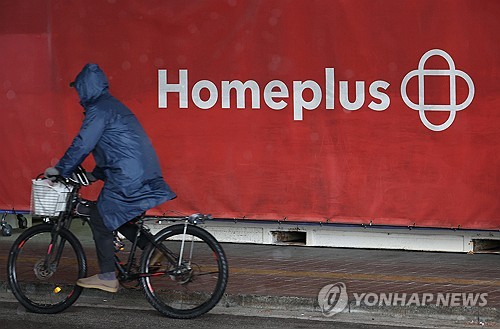
(Seoul=Yonhap Infomax) ○…The Bank of Korea, in its "BOK Issue Note" released on the 12th (authored by Deputy Director Lee Jong-ung, Manager Boo Yoo-shin, and Researcher Baek Chang-in), identified the failure to exit non-viable companies as a key factor behind the structural slowdown in South Korea's economic growth since the 1990s.
The authors noted that if the market’s "cleansing mechanism"—where marginal firms naturally exit—had functioned properly, both investment and gross domestic product (GDP) would have grown more than they actually did.
According to the analysis, between 2022 and 2024, companies at high risk of exit accounted for 3.8% of the sample, but only 0.4% actually exited the market. The report estimates that if these marginal firms had been replaced by dynamic new entrants, investment would have risen by 2.8% and GDP by 0.4%.
While the report does not explicitly mention "zombie companies" or single out specific industries, one company inevitably comes to mind: Homeplus.
The phrase "too big to fail" aptly describes Homeplus. The company’s liquidation value (about 3.7 trillion won, or $2.8 billion) exceeds its going-concern value (about 2.5 trillion won, or $1.9 billion) by more than 1 trillion won ($760 million), suggesting bankruptcy would not be surprising—yet it remains operational.
With 20,000 direct employees and up to 100,000 people’s livelihoods tied to the company including indirect employment, the potential fallout cannot be ignored. Its nationwide presence also gives it significant political weight.
Two small and medium-sized enterprises—Harex InfoTech and Snowmad—have officially expressed interest in acquiring Homeplus. However, few believe either could successfully manage the retailer post-acquisition.
Homeplus posted a net loss of 675.8 billion won ($510 million) in the last fiscal year (March 2024–February 2025). Even if conditions do not deteriorate further, the company’s equity is set to shrink by nearly 700 billion won ($530 million) annually. Moreover, the outlook for the offline retail sector remains challenging.
Even if NongHyup (National Agricultural Cooperative Federation), as some in the political sphere hope or pressure, steps in to acquire Homeplus, a turnaround is unlikely. NongHyup does not possess a "magic bullet," and taking on a retailer larger than its own Hanaro Mart could prove risky.
Absent dramatic change, Homeplus risks becoming a drag on overall economic productivity. Its vast store sites, workforce, and capital would remain locked in less productive uses, rather than being reallocated to more dynamic sectors.
From a jobs perspective, reallocating capital to growth industries could, over the long term, create more and better-quality employment opportunities.
The BOK Issue Note’s authors emphasized, "Even when providing financial support, policy should facilitate smooth market entry and exit for companies to underpin economic innovation and dynamism."
Homeplus’s fate will likely not be determined by market logic alone. However, it is important to recognize that the accumulation of such cases has gradually weighed down South Korea’s growth rate. (Industry Desk, Hak Seong Kim)
hskim@yna.co.kr
(End)
© Yonhap Infomax. All rights reserved. Unauthorized reproduction, redistribution, or AI training/use prohibited.
Copyright © Yonhap Infomax Unauthorized reproduction and redistribution prohibited.

